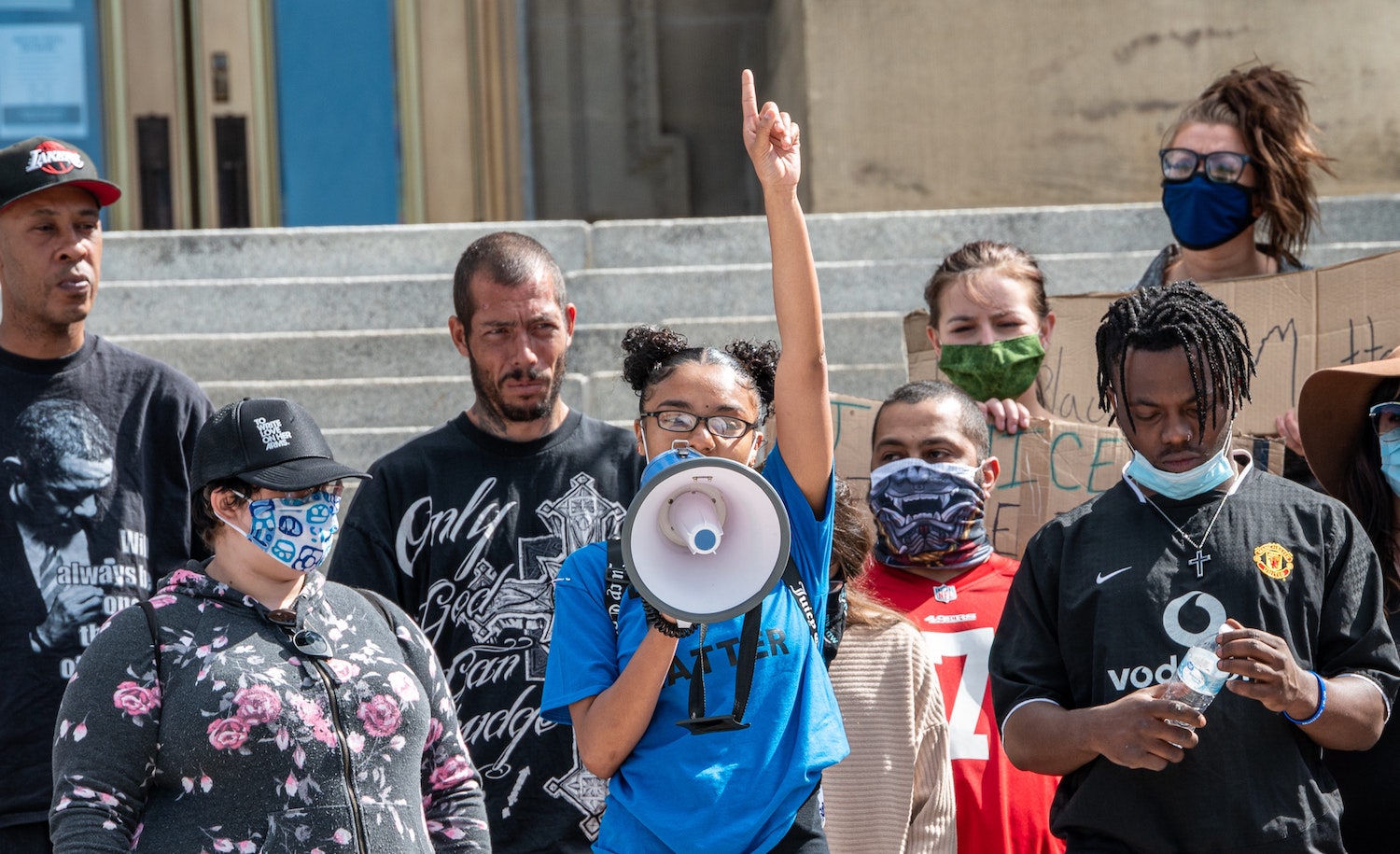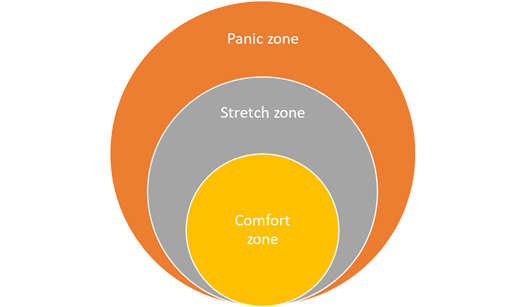HSPs Are the Activists We Need — Even in a Chaotic World

The very things that make us most sensitive — like how we feel others’ emotions — also make us great at effecting change.
When I first became aware of the highly sensitive person (HSP) personality trait and recognized this in my own life, I was beyond relieved. An introverted lover of music, books, writing, and nature, I saw how essential these quiet pursuits were to my well-being and productivity.
But the intense negative emotions I felt in the midst of crowded, noisy events — like concerts and sporting events — went beyond the typical introvert/extrovert dichotomy. Why did I react so strongly to stimuli that did not bother others? I had no idea “normal” people felt this way.
Research by a growing number of academics, along with communities like our own, help us HSPs see ourselves more insightfully and remind us to treat ourselves with kindness and compassion when our sensitivity amplifies life’s stressors. When we take time to probe our rich inner lives, we reap the benefits of our innate sensitivity and understand which situations will drain our energy or provoke anxiety, which can be a game changer.
That said, we must value the gifts of our heightened sensitivity and use them to our benefit, such as becoming formidable activists. Yes, even if we tear up while watching a beautiful sunrise, we can still take charge and fight for causes we believe in. (More on that in a moment.)
Day to day, an HSP’s depth of feeling can be a devastation or a delight. For example, we can be easily upset by stories of violence and cruelty, as well as get exhausted by absorbing other people’s feelings — which we can’t help but do. Conflict and criticism, too, can fill us with anxiety and stress.
Yet we also find incredible meaning in sights, sounds, and ideas that others miss. For instance, have you ever noticed all the details in a sunflower? Or can you smell that hint of garlic in the spaghetti sauce that’s simmering as much as I can? Or can you pick up on how upset your friend is even though they haven’t uttered a word?
By being cognizant of these things — and embracing our highly sensitive traits — they can become an asset and help us on our path to becoming leaders and activists. Here’s how.
HSPs, Your Empathetic Nature Makes You Natural-Born Leaders and Activists
Many highly sensitive people are fascinated by the big questions in life. Conscientious, empathetic, and perceptive, HSPs are also known for making excellent leaders, as well as effective activists.
It’s because our deeper awareness of the pain of those who suffer fuels our compassion and connection to a shared human experience. My intense reaction to the racist violence over the past several months, for example, is propelling me toward an increased involvement in anti-racism and justice work.
The tricky thing about being an HSP activist, however, is that activities and events associated with social justice are often loud and confrontational. Many protests this summer turned destructive, even violent — and HSPs tend to abhor violence, as I mentioned earlier.
I realize the importance of citizens raising their voices in peaceful protests to challenge injustice and evil in the world — “good trouble,” as civil rights leader John Lewis said. But the reality is, I could easily wind up in a screaming sea of strangers or standing face-to-face with a uniformed officer who has tear gas and a gun.
I’ve lived in major cities for most of my life, where there were lots of opportunities to march for issues that were important to me. But I never have. The idea of being surrounded by all those people — yelling, angry people — I just couldn’t do it. I felt guilty about this. If I was sincerely devoted to a cause, why couldn’t I step out of my comfort zone and join the marches and protests? Was I being a selfish wimp? And what about HSPs being ideal activists?
To Become Activists, We Need to Get Out of Our HSP Comfort Zones
How we relate to our comfort zone is usually discussed in the context of work or athletic training, but it is relevant to HSPs becoming activists, as well.
Our zones of comfort are often described by researchers in terms of three concentric circles.
- Comfort Zone: When we stay in the comfortable center, we are able to easily tap into our natural gifts and abilities.
- Stretch Zone: If we stretch outside this circle into an area of learning and growth, we may experience a temporary, but manageable, discomfort that can help us discover talents and interests that we were not aware of.
- Panic Zone: When we move too far beyond these boundaries, we enter a zone of stress and panic that can undermine our growth entirely.

Research on why it is a bad idea to go too far from the comfort zone shows that while people who stretch into the band of growth can become more productive and effective over the long haul, those who push too far (like workaholics and extreme athletes) may experience serious health consequences and burnout. We might even reflexively shrink the original boundaries of our comfort zone in an effort to protect ourselves from future stress or anxiety.
So how does an aspiring activist know where the stretch zone is? In-touch HSPs usually know right away when they have strayed into the panic zone, launching a familiar cycle of distress, followed by recuperative self-care. But, we can avoid unhealthy extremes by planning ahead and experimenting gradually with our natural boundaries — which will help us on our path to activism.
Like what you’re reading? Get our newsletter just for HSPs. One email, every Friday. Click here to subscribe!
Everyone’s Version of Activism Will Be Different and Specific to Them
Organizational behavior expert Andy Molinsky notes that we each have an optimal amount of discomfort that we can leverage for growth. Various factors determine where this is, including personality and tolerance to stress. One person’s stretch is another person’s panic, so it is important to honor our natural limits rather than trying to squeeze into someone else’s ideal space.
This makes sense when you think about it. We each have our own unique gifts to share with the world. For me, pushing myself to be more of an activist for things I feel strongly about has been a process of experimenting and learning, then stretching a little further the next time. I use this awareness to develop “do this instead of that” strategies that allow me to raise my voice and exert influence while staying true to myself.
For example, instead of attending a loud, potentially chaotic march, I choose to:
- Raise my voice by writing. I write letters to my elected officials, articles to encourage or challenge readers, and private laments in my journal to help redirect sad or angry feelings in more productive ways.
- “March” with my wallet. I shop, invest, and donate to companies that are acting for change in my community.
- Be an informed citizen. I make sure to vote during each election.
- Meet in small groups to further educate myself. I discuss issues with others and learn about root causes of injustice so I can target my time and energy effectively.
- Share moving film and book recommendations. I try to inspire others with these recommendations that have moved me deeply on a certain issue.
Remember, although those of us who are highly sensitive may not look like stereotypical activists, there are many ways for us to get active and involved, which is especially important these days.
So tell me: What are some of your “do this instead of that” strategies? Have you explored your activist stretch zone? If not, what’s stopping you?
Need to Calm Your Sensitive Nervous System?
HSPs often live with high levels of anxiety, sensory overload and stress — and negative emotions can overwhelm us. But what if you could finally feel calm instead?
That’s what you’ll find in this powerful online course by Julie Bjelland, one of the top HSP therapists in the world. You’ll learn to turn off the racing thoughts, end emotional flooding, eliminate sensory overload, and finally make space for your sensitive gifts to shine.
Stop feeling held back and start to feel confident you can handle anything. Check out this “HSP Toolbox” and start making a change today. Click here to learn more.
You might like:
- Highly Sensitive People Make the Most Formidable Activists
- Highly Sensitive People Are Born Leaders. Here’s Why.
- 13 Problems Only Highly Sensitive People Will Understand
This article contains affiliate links. We only recommend products we truly believe in.
